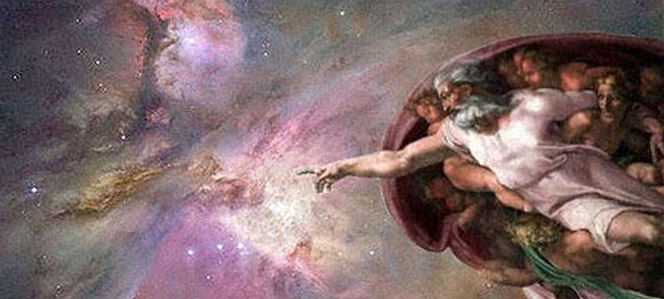For the past several months, I’ve been posting short commentaries on YouTube, probably the most popular website in the world. I’ve covered everything from movies and music to books and cultural trends, but I’ve given special attention to the problem of the “new” atheism. I’ve posted three answers to Christopher Hitchens’ terrible book God is Not Great, a brief presentation of some classical arguments for God’s existence, and most recently, a response to Bill Maher’s movie “Religulous.” As you might know, people are able to post comments in response to videos, and I’ve received a huge quantity of them—mostly negative—in regard to the aforementioned pieces. Setting aside the venomous and emotionally-driven comments, I’ve been able to discern, in the more serious ones, a number of patterns. If an apologist or evangelist were interested in composing a twenty-first century version of St. Irenaeus’s classic Against the Heresies, he could do worse than to consult these YouTube responses.
The most glaring of these heretical patterns is what I would call scientism, the philosophical assumption that the real is reducible to what the empirical sciences can verify or describe. In reaction to my attempts to demonstrate that God must exist as the necessary ground to the radically contingent universe, respondent after respondent says some version of this: energy, or matter, or the Big Bang, is the ultimate cause of all things. When I counter that the Big Bang itself demonstrates that the universe in its totality is contingent and hence in need of a cause extraneous to itself, they think I’m just talking nonsense. The obvious success of the physical sciences—evident in the technology that surrounds us and facilitates our lives in so many ways—has convinced many of our young people (the vast majority of those who watch YouTube are young) that anything outside of the range of the empirical and measurable is simply a fantasy, the stuff of superstition and primitive belief. That there might be a dimension of reality knowable in a non-scientific but still rational manner never occurs to them. This prejudice, this blindness to literature, philosophy, metaphysics, mysticism, and religion is the scientism that I’m complaining about.
Another feature of this scientism—and it’s evident everywhere on my YouTube forums—is the extremely disturbing assumption that science and religion are, by their natures, implacable enemies. Again and again, my interlocutors resurrect the story of Galileo to prove that the church has always sided with obscurantism and naïve biblical literalism over and against the sciences. The Catholic philosopher Robert Sokolowski has argued that the founding myth of modernity is that enlightened thought was born out of, and in opposition to, pre-scientific religion. And this is why, Sokolowski continues, the conflict between religion and science must be perpetually rehearsed and revived, as a kind of ritual acting out of the primal story. If you want to see a particularly dramatic presentation of this, watch the movie “Inherit the Wind.”
But this myth is so much nonsense. Leaving aside the complexities of the Galileo story (and there are complexities to it), we can see that the vast majority of the founding figures of modern science—Copernicus, Newton, Kepler, Descartes, Pascal, Tycho Brahe—were devoutly religious. More to it, two of the most important physicists of the 19th century—Faraday and Maxwell—were extremely pious, and the formulator of the Big Bang theory was a priest! If you want a contemporary embodiment of the coming-together of science and religion, look to John Polkinghorne, Cambridge particle physicist and Anglican priest and one of the best commentators on the non-competitive interface between scientific and religious paths to truth.
Indeed, as Polkinghorne and many others have pointed out, the modern physical sciences were, in fact, made possible by the religious milieu out of which they emerged. It is no accident that modern science first appeared precisely in Christian Europe, where a doctrine of creation held sway. To hold that the world is created is to accept, simultaneously, the two assumptions required for science, namely, that the universe is not divine and that it is marked, through and through, by intelligibility. If the world or nature is considered divine (as it is in many philosophies and mysticisms), then one would never allow oneself to analyze it, dissect it, or perform experiments upon it. But a created world, by definition, is not divine. It is other than God, and in that very otherness, scientists find their freedom to act. At the same time, if the world is unintelligible, no science would get off the ground, since all science is based upon the presumption that nature can be known, that it has a form. But the world, precisely as created by a divine intelligence, is thoroughly intelligible, and hence scientists have the confidence to seek, explore, and experiment.
This is why thoughtful Christians must battle the myth of the eternal warfare of science and religion. We must continually preach, as John Paul II did, that faith and reason are complementary and compatible paths toward the knowledge of truth.
